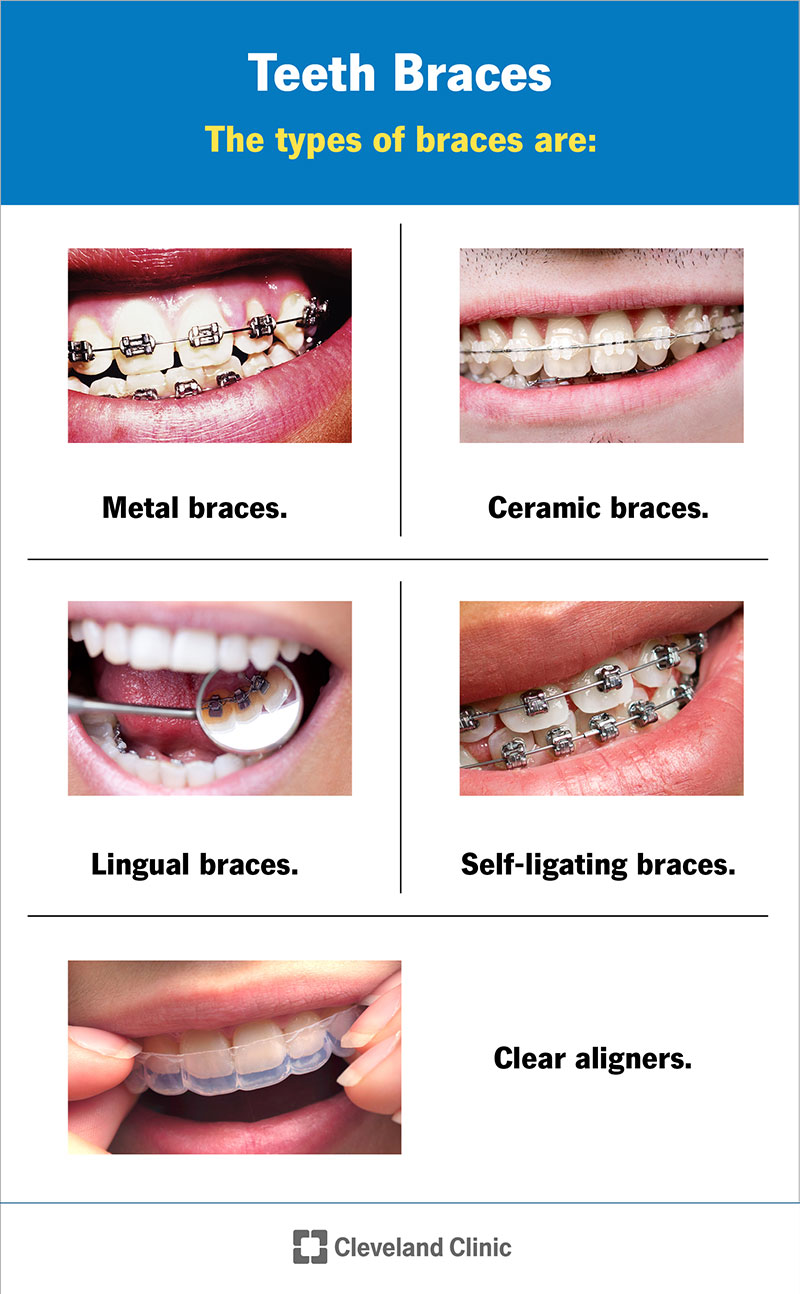What Establishes Cumming Braces and Aligners In Addition To Other Orthodontic Treatments
What Establishes Cumming Braces and Aligners In Addition To Other Orthodontic Treatments
Blog Article
Comprehensive Guide to Orthodontics Treatments for Remedying Oral Imbalances
In the realm of orthodontics, the journey to attaining a perfectly straightened smile includes a myriad of treatments tailored to remedy oral misalignments. From traditional dental braces to undetectable aligners and even medical alternatives, the field of orthodontics uses a variety of solutions to deal with varying degrees of oral abnormalities. Recognizing the complexities of each treatment, including their devices, advantages, and potential disadvantages, is crucial in making informed decisions regarding one's orthodontic treatment. As we browse with the thorough guide to orthodontic procedures for correcting dental misalignments, the elaborate information of each technique will unfold, dropping light on the course towards a functional and unified oral alignment.
Orthodontic Procedures Overview

Along with traditional dental braces and clear aligners, orthodontists might likewise suggest various other treatments like headgear, palatal expanders, or retainers to resolve certain alignment concerns (cumming orthodontics). These procedures are tailored per client's unique demands and may include a mix of therapies to achieve the preferred outcomes. Routine adjustments and surveillance are vital components of orthodontic treatment to guarantee progression is on track and to make any type of essential modifications along the road. By undergoing orthodontic procedures, people can not just attain a straighter grin but additionally improve their general dental wellness and feature.
Traditional Dental Braces: Exactly How They Function
When considering orthodontic therapies for oral imbalances, conventional dental braces stand out as a tried and true approach for dealing with teeth positioning. Conventional dental braces consist of brackets, cords, and bands that work together to use constant stress on the teeth, slowly relocating them into the preferred placement.
One key element of just how standard dental braces work is the process of bone remodeling. As pressure is applied to the teeth with the dental braces, the bone surrounding the teeth is improved to support the new tooth settings. This makeover is necessary for the lasting stability of the fixed positioning. Individuals will need regular modifications at the orthodontist's office to make certain the dental braces remain to apply the correct pressure for effective teeth movement.
Invisible Aligners: Benefits And Drawbacks
These clear, personalized trays are essentially unnoticeable when used, making them an appealing option for individuals seeking a more visually pleasing orthodontic treatment. Individuals can remove the aligners prior to consuming or brushing their teeth, decreasing the risk of food obtaining stuck in the device and streamlining the cleansing procedure.

Surgical Orthodontic Options
Surgical interventions in orthodontics present practical choices for attending to intricate oral imbalances that may not be efficiently solved via standard orthodontic therapies. While unseen aligners and typical dental braces can remedy lots of orthodontic problems, certain cases call for medical treatment to accomplish optimal results. Surgical orthodontic alternatives are typically advised for extreme malocclusions, considerable jaw inconsistencies, and instances where the underlying bone structure needs alteration to attain appropriate alignment.
One usual medical orthodontic procedure is orthognathic surgery, which entails rearranging the jaws to correct useful problems such as difficulty eating or speaking. This surgical procedure is often done in partnership with an orthodontist who aids line up the teeth prior to and after the treatment. Surgical orthodontics might likewise include treatments to expose impacted teeth, eliminate excess periodontal tissue, or improve the jawbone to produce a more unified facial account.
Before taking into consideration surgical orthodontic alternatives, individuals undergo an extensive evaluation to establish the necessity and possible advantages of such interventions. braces. While surgical procedure may appear difficult, it can significantly enhance both the feature and aesthetic appeals of the smile in cases where traditional orthodontic therapies fall short
Retainers and Post-Treatment Care

Failure to conform with post-treatment care instructions can result in relapse, where the teeth gradually relocate back in the direction of their initial placements. Regular retainer wear, excellent dental hygiene, and routine dental check-ups are necessary for keeping the results accomplished with orthodontic surgical procedure and making certain the lasting stability of the fixed dental placement.
Verdict
In final thought, orthodontic treatments provide different choices for dealing with oral imbalances. Surgical orthodontic options are readily available for a lot more serious misalignments. Overall, orthodontic procedures can efficiently enhance oral wellness and aesthetic appearance.
As we browse with the comprehensive overview to orthodontic treatments for remedying dental imbalances, the intricate details of each approach will unfold, losing light on the path toward a harmonious and practical dental placement. - braces
One of the most usual orthodontic therapies is the use of braces, which consist of steel braces and wires that apply gentle dentistry today stress to gradually move teeth right into the desired position.When thinking about orthodontic therapies for dental imbalances, traditional braces stand out as a tried and true approach for correcting teeth placing. Additionally, unseen aligners might not be appropriate for complicated orthodontic issues that call for more significant teeth movement, as they are generally recommended for light to moderate cases. Retainers are custom-made orthodontic devices designed to hold teeth in their corrected settings after the conclusion of orthodontic therapy.
Report this page